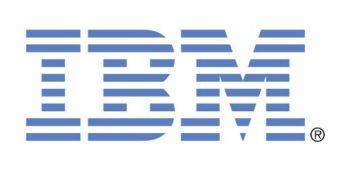IBM has announced just recently that the Slovak Academy of Science has chosen the company to provide a 96 teraflop supercomputer, which will become the fastest system in the country after being installed.
IBM will work on this project together with local business partner DATALAN and the system will be based on IBM’s Power 775 and 755 systems which will be paired together with the DS5300 storage system.
According to the company, the IBM Power 755 is a high performance computing cluster node with 32 POWER7 processor cores that is optimized for running highly parallel computationally intensive workloads and algorithms.
The supercomputer will be deployed for scientific research requiring high computing capacity in physical chemistry, biochemistry, materials sciences, particle physics, quantum physics, virology, biomechanics and astrophysics.
"This is an important technology acquisition for the entire Slovak science research and education community," said Tomas Lacko, Data Center Director at the Slovak Academy of Science.
"Having a supercomputer of this magnitude in our country could open many new opportunities in developing our national infrastructure and advancing applied research in automotive, pharmaceutical, biotechnology and other sectors of our economy," concluded the company’s rep.
When completed, the supercomputer will be shared by three departments of the Slovak Academy of Science (Computer Center, IT Institute in Bratislava and Institute of Experimental Physics in Kosice) and a consortium of four major universities (Slovak University of Technology in Bratislava, Zilina University, Matej Bel University in Banska Bystrica and Technical University in Kosice).
"IBM has long played an important role in the development of Slovakia's public and private sector infrastructures," said Branislav Sebo, Country General Manager, IBM Slovakia.
"With this deal, science and education in Slovakia are entering a new era and opening up new research possibilities in the country," concluded Mr. Sebo.
IBM, nor the Slovak Academy of Science, hasn’t mentioned when the new system will go live.

 14 DAY TRIAL //
14 DAY TRIAL //